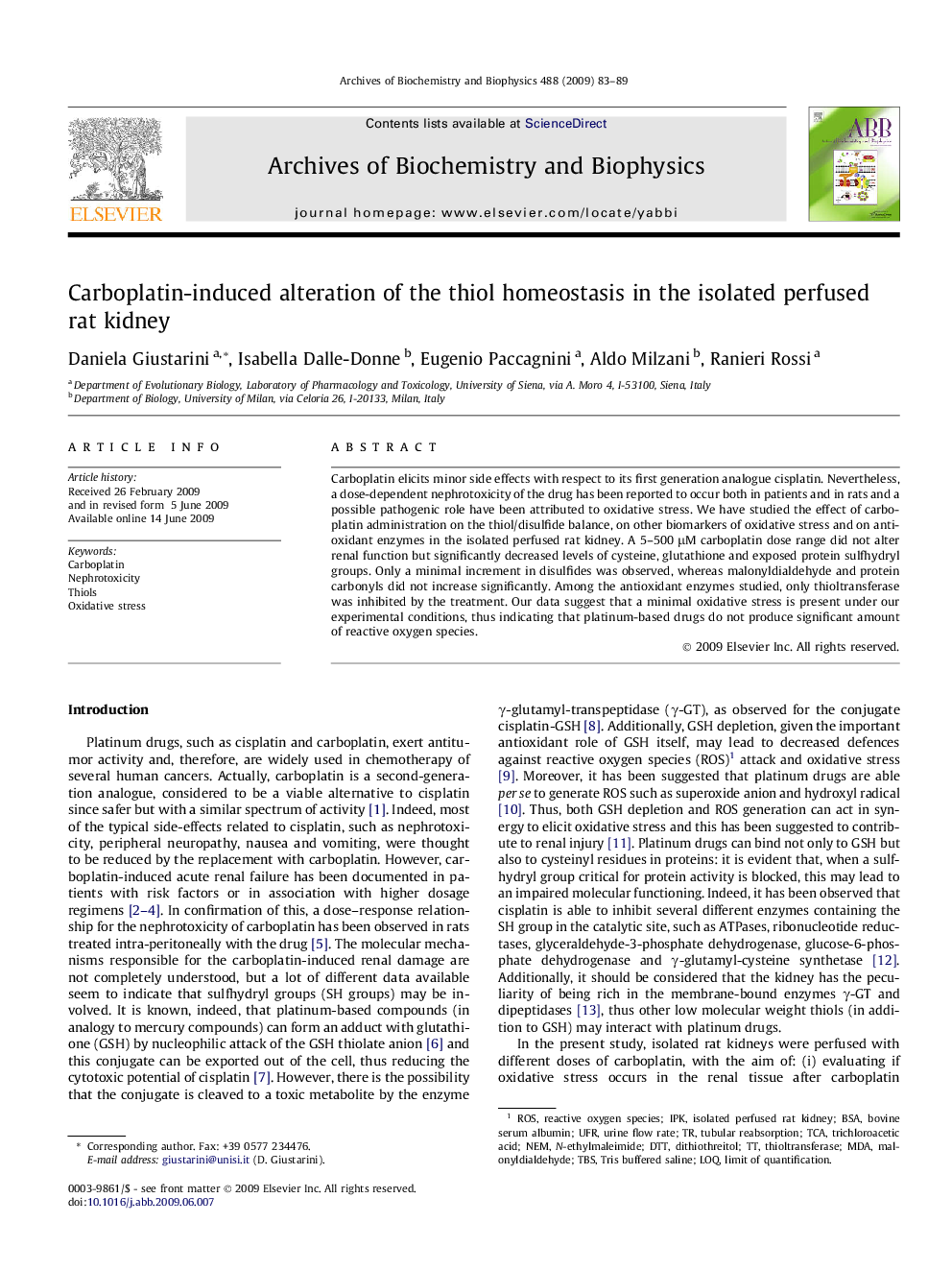| Article ID | Journal | Published Year | Pages | File Type |
|---|---|---|---|---|
| 1926329 | Archives of Biochemistry and Biophysics | 2009 | 7 Pages |
Abstract
Carboplatin elicits minor side effects with respect to its first generation analogue cisplatin. Nevertheless, a dose-dependent nephrotoxicity of the drug has been reported to occur both in patients and in rats and a possible pathogenic role have been attributed to oxidative stress. We have studied the effect of carboplatin administration on the thiol/disulfide balance, on other biomarkers of oxidative stress and on antioxidant enzymes in the isolated perfused rat kidney. A 5-500 μM carboplatin dose range did not alter renal function but significantly decreased levels of cysteine, glutathione and exposed protein sulfhydryl groups. Only a minimal increment in disulfides was observed, whereas malonyldialdehyde and protein carbonyls did not increase significantly. Among the antioxidant enzymes studied, only thioltransferase was inhibited by the treatment. Our data suggest that a minimal oxidative stress is present under our experimental conditions, thus indicating that platinum-based drugs do not produce significant amount of reactive oxygen species.
Related Topics
Life Sciences
Biochemistry, Genetics and Molecular Biology
Biochemistry
Authors
Daniela Giustarini, Isabella Dalle-Donne, Eugenio Paccagnini, Aldo Milzani, Ranieri Rossi,
